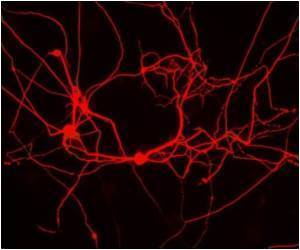Humans with lower motor excitability have reduced working memory than humans with higher motor excitability, researchers have found

By measuring the excitability of the motor cortex, conclusions can be drawn as to the excitability of other cortical areas, Nathalie Schicktanz, doctoral student and first author of the study, said.
The results might also have important clinical implications, as working memory deficits are a component of many neuropsychiatric disorders, such as schizophrenia or attention deficit hyperactivity disorder. In a next step, the scientists plan to study the relation between neuronal excitability and memory on a molecular level.
The study is part of a project lead by Prof. Dominique de Quervain and Prof. Andreas Papassotiropoulos. The project uses transcranial magnetic stimulation to study the cognitive functions in humans. The goal is to identify the neurobiological and molecular mechanisms of human memory.
Source-ANI







